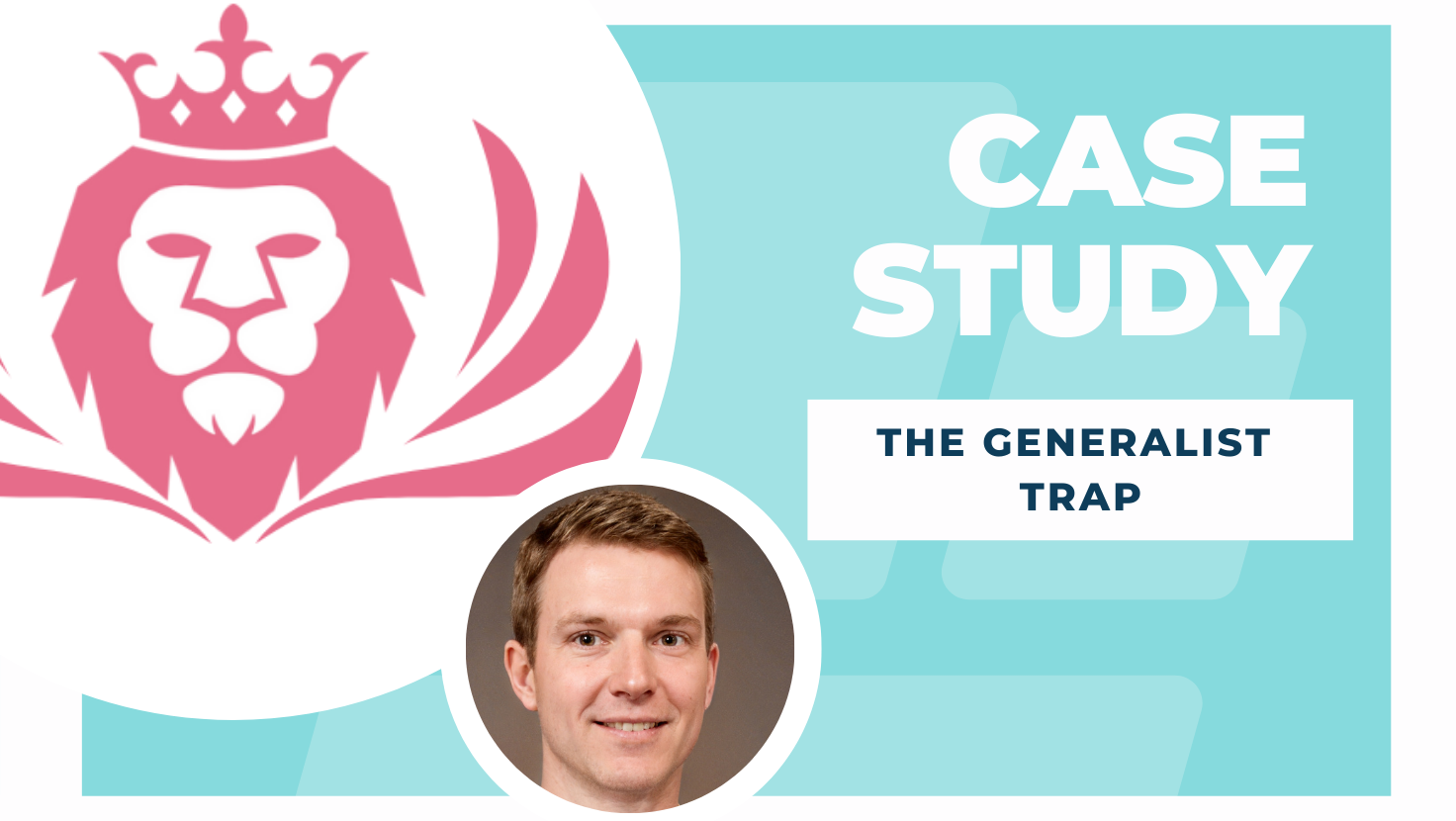
How David Went From $50 to $5000
David charged fifty dollars per hour for mindfulness coaching.
Six months later, he was earning $5,000 per client for a ten-week program. Same expertise. Same passion for helping people. Completely different business model.
The transformation didn't happen because David got better at coaching. He was already skilled, certified, and genuinely committed to helping clients manage stress and find balance.
What changed was how he positioned that expertise.
The Problem With Competing Against Free
David's initial struggle wasn't unique among wellness coaches. He was trying to justify his $50-$80 hourly rate while clients could access meditation apps, YouTube videos, and free mindfulness content everywhere.
Despite extensive training and multiple certifications, David found himself trapped in session-by-session coaching. Clients expected instant results but lacked commitment to long-term transformation. He was working 35+ hours weekly in direct coaching, earning $2,000-$3,500 monthly, and constantly feeling undervalued.
The real issue wasn't his coaching ability. David was competing with free resources instead of differentiating from them.
Research shows that entrepreneur stress affects nearly 3 in 5 founders, yet only 23% seek professional coaching support. This represents a massive underserved market willing to invest in specialized expertise.
The Three-Phase Transformation
David's breakthrough came through systematic repositioning rather than additional training.
Phase One: Specialized Positioning
Instead of general mindfulness coaching, David became "The High-Performance Calm Coach" specifically for entrepreneurs. This immediately separated him from generic wellness content and free meditation resources.
The specialization allowed him to speak directly to entrepreneur-specific stressors like decision fatigue, constant pressure, and work-life boundary challenges that free apps couldn't address.
Phase Two: Methodology Development
David created "The Entrepreneur Equilibrium Method," a structured 10-week program with specific phases, tools, and outcomes. Having a named methodology instantly created credibility and differentiation.
The program included weekly coaching sessions, customized stress management protocols, and business-specific mindfulness applications. Clients weren't buying time; they were investing in a complete transformation system.
Phase Three: Premium Pricing Implementation
David set his program fee at $5,000. This pricing accomplished three crucial things: it ensured client commitment, attracted serious entrepreneurs who valued expertise, and positioned him as a premium solution rather than a commodity service.
Executive coaching programs typically range from $5,000 to $15,000 for comprehensive six-month engagements, validating David's pricing within established market standards.
The Results Speak Clearly
The transformation was dramatic and measurable.
Monthly revenue increased from $2,000-$3,500 to $15,000-$20,000, representing a 470% increase. David's effective hourly rate jumped from $50-$80 to approximately $3,125 per hour when calculated across program delivery time.
More importantly, he reduced his weekly coaching hours from 35+ to just 10-12 hours serving four premium clients monthly instead of 25-30 individual session clients.
The business model shift created the freedom that most coaches desperately want but rarely achieve through traditional hourly billing approaches.
The Broader Lessons for Coaches
David's transformation reveals several critical principles that apply across coaching specializations.
Positioning Trumps Pricing
The difference between charging $50 and $5,000 wasn't the coaching itself. David's expertise remained constant. The transformation came from positioning that expertise as a specific solution for specific problems faced by specific people.
Methodology Creates Credibility
Value-based pricing works because clients invest in results, not time. David's named methodology gave clients confidence they were purchasing a proven system rather than generic coaching conversations.
Premium Clients Exist in Every Niche
Even in the crowded mindfulness space with abundant free resources, entrepreneurs valued David's specialized expertise enough to invest $5,000. Every coaching niche contains clients who will pay premium rates for targeted solutions.
Boundaries Enhance Value
By eliminating accommodating behaviors like flexible scheduling and emergency availability, David actually increased his perceived value. Professional boundaries signal expertise and create respect.
The Real Question for Your Practice
David's case study forces an uncomfortable but necessary question for every coach: What would you need to deliver to justify charging $5,000 for your expertise?
The answer reveals whether you're thinking like a service provider or a solution creator.
Most coaches focus on getting better at coaching when they should focus on getting better at positioning their existing expertise. David proved that transformation comes from clarity about who you serve and how you serve them, not from accumulating more certifications or improving your session techniques.
Your expertise already exists. The question is whether you'll package it as a premium solution or continue competing with free resources.
